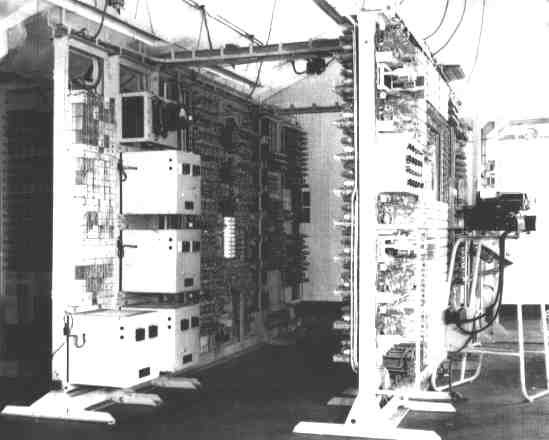June 6, 2024
New Name, Historic Legacy: Welcome to Colossus Computing
We've always been inspired by the rich history of computing and science. Today, we are thrilled to announce a significant milestone in our journey: we are changing our name from Zephyr Computing Systems to Colossus Computing.
Brief History of Colossus
Situated within Bletchley Park, the nerve center of British intelligence during World War II, the Colossus computer played a crucial role in decrypting top-secret military communications between Hitler and his armed forces. During World War II, Germany developed two tools to send transmissions: Enigma cipher, used for general transmissions, and the advanced Lorenz cipher, used to transmit top-level messages from Hitler and his army high command in Berlin.
Leap from paper to electronic
After Alan Turing cracked Enigma he assembled a new team with Tommy Flowers to tackle decoding messages encrypted with the Lorenz cipher. They first developed the Heath Robinson machine, which used paper tapes to decode messages. However, when this project didn’t work, Flowers proposed an electronic machine, Colossus, to generate the key electronically.
This colossus leap from paper to electronic key generation was the first instance of “logic gates”, and the origin of modern, digital computers. Today, a logic gate is a fundamental component of digital circuits, performing essential logical functions like Boolean logic.
The supercomputing advantage
The advent of Colossus marked a significant turning point in the quest to break the Lorenz cipher. Colossus harnessed the power of almost 2,000 electronic valves to achieve unparalleled processing speeds. Colossus's ability to analyze over 100 messages a week, operating at 5,000 characters per second, revolutionized the code breaking efforts at Bletchley Park.
Colossus reduced the time to break Lorenz messages from weeks to hours. These electronic computers, working in tandem with their human counterparts, provided invaluable intelligence that shaped Allied strategies and contributed to pivotal victories, including Normandy D-Day landings.
The legacy of Colossus extends beyond its wartime achievements. Parts of two Colossi were transferred to the University of Manchester post-war, laying the foundation for the development of all-purpose electronic computers. Colossus' successor, aptly named "Baby," marked the dawn of a new era in computing—a testament to the enduring legacy of innovation and collaboration.
As Colossus Computing, we honor this legacy. This name change is a tribute to the pioneers of computing and the willingness to advance technology and our thinking.
"It's not that we need new ideas, but we need to stop having old ideas." - Grace Hopper
Join us in this new chapter. Welcome to Colossus Computing.


